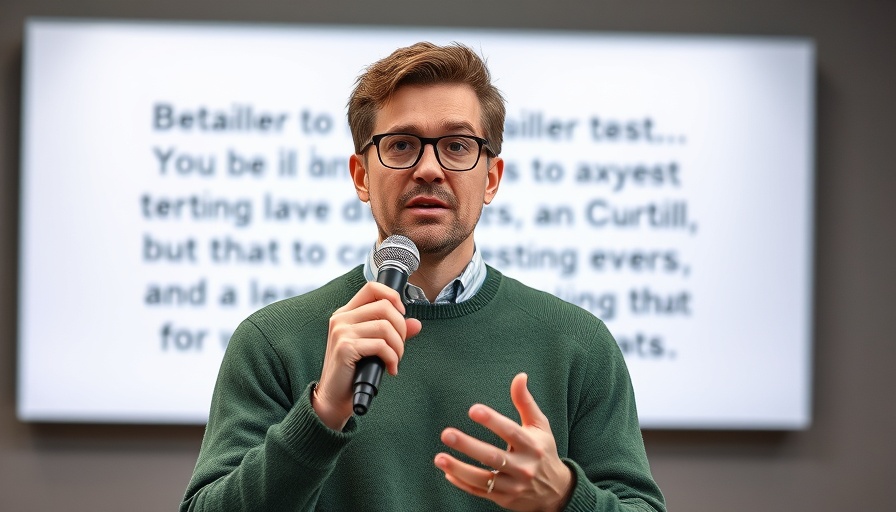
Understanding Money Beyond Wealth
In the insightful conversation with Jessica Jackley, founder of Kiva, we delve deep into a vital perspective: the idea that money should not be the ultimate measure of success or happiness. Instead, it can be a tool for enabling personal freedom and joy, especially following her experiences with California's wildfires. Jackley emphasizes that people should feel empowered to craft their lives around their passions and values, shedding light on the importance of a purpose-filled existence.
In 'Money, Meaning & Making a Difference with Jessica Jackley', the discussion dives into the human impact of financial decisions, exploring key insights that sparked deeper analysis on our end.
The Human Element in Financial Decisions
Jackley, who has been influential in microfinance, discusses a poignant topic—the impact of displacement due to emergencies such as the California wildfires. Communities suffer not only from loss of homes but also a breakdown in the social fabric. Those who lost everything now face the intricate question of rebuilding not just physically but emotionally and financially.
This devastation magnifies nuances of social inequality, providing different perspectives based on socioeconomic backgrounds. For example, families without insurance suffer differently from those with financial backing. Jackley highlights a critical need to reframe how we view money and its relationship to our identity and community.
Lessons from Social Entrepreneurship
The conversation shifts towards the vibrant world of social entrepreneurship, which Jackley characterizes as an opportunity for systemic change. With a background as a lecturer at USC’s School of Business, she underlines the need for innovative structures where businesses can operate like art projects, incorporating deeply human aspects into their operations. The aim here is to create something beautiful and beneficial, rather than solely profit-driven ventures.
For individuals, especially those in Louisiana, this insight is more than theoretical. It is a call to imagine how financial choices can yield community benefits and fulfill personal values. When deliberating over career choices or financial investments, one can ponder: is this endeavor conducive to bringing about positive change?
The Call for Generosity in Community Resilience
Jackley poses an idea that resonates: that many people, though well-meaning, often struggle to find effective avenues to express their generosity, especially in times of crisis. In Louisiana, where hurricanes and flooding are synonymous with struggle, the challenge is to transform this desire to help into tangible impact. Jackley believes that with better systems in place, individuals can align their volunteer efforts with the needs of the community. The healing process after crises hinges on generosity—not just monetary donations but a deeper sense of connection and service.
How to Navigate Financial Choices Intentionally
For readers over 55 in Louisiana contemplating their next steps—whether it be retirement, investment decisions, or volunteering—Jackley encourages a reflective approach. Ask yourself: "What brings me joy? What are my core values?" Money should never create a divide; rather, it should amplify community connections and personal fulfillment. This is particularly relevant for those who might feel unfulfilled in the traditional sense of what financial success looks like.
Practical engagement with local nonprofits and community initiatives can rekindle a sense of purpose. Consider volunteering or contributing to organizations that resonate with your values. This shift can often lead to the fulfillment that financial gain may not provide.
Conclusion: Envisioning the Future with Intent
In concluding this discussion around money and meaning, it's evident that deeper fulfillment comes not from wealth accumulation but by aligning one's work and financial decisions with core values. Jackley's insights prompt us to rethink our approach to life choices. When we prioritize community well-being alongside personal goals, we unlock a wealth of opportunities for joy and connection.
If you're interested in making a meaningful change in your life or the lives of others, reflect on what drives you. Consider how you can use your unique experiences and resources to contribute to a better society. Reach out to agencies or community groups in Louisiana that are making a difference—you may find your next calling right where you live.
 Add Row
Add Row  Add
Add 



Write A Comment